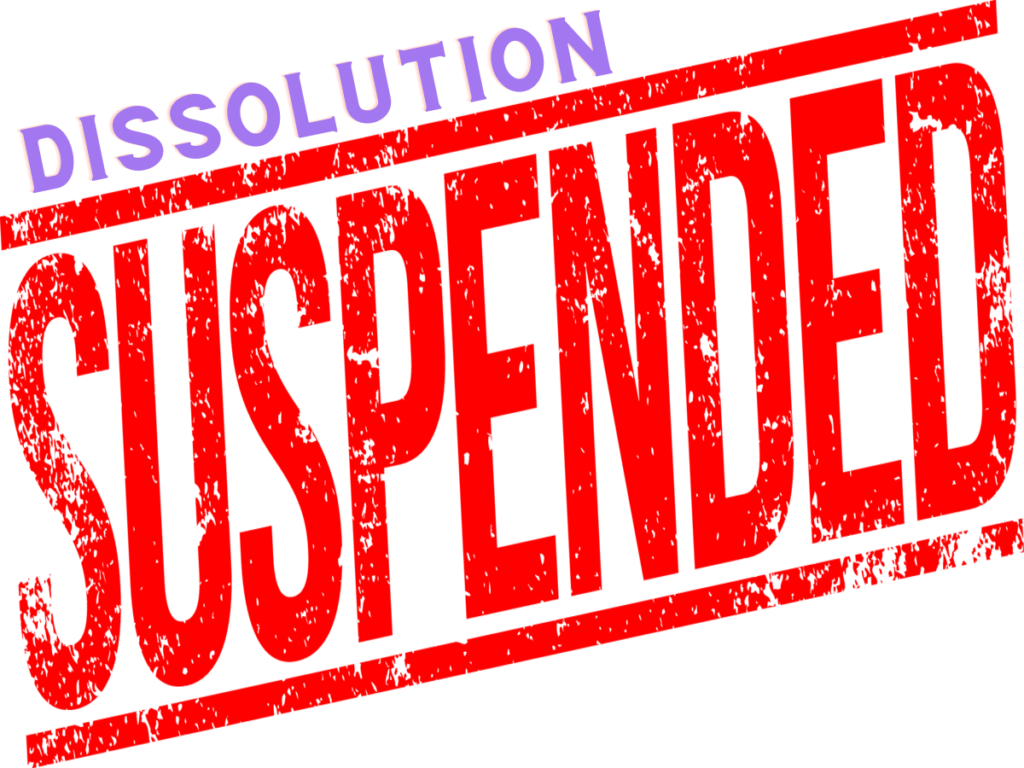Necessary Facts Regarding Very First Gazette Notice for Compulsory Strike Off
Necessary Facts Regarding Very First Gazette Notice for Compulsory Strike Off
Blog Article
A Comprehensive Overview to the Compulsory Strike Off Treatment in Corporate Governance
Navigating the elaborate landscape of business governance requires a keen understanding of the treatments that govern the dissolution of entities. The compulsory strike off treatment, a crucial element in corporate administration, works as a system to impose compliance and maintain the honesty of the organization setting. As companies progress and circumstances change, the demand to strike off a firm might occur for various reasons (first gazette notice for compulsory strike-off). Exploring the details of this process, including the lawful effects, procedural actions, and post-strike off considerations, supplies very useful understandings for stakeholders looking for to browse the complexities of company administration.
Factors for Compulsory Strike Off
There are several essential factors that might motivate the initiation of a mandatory strike off treatment for a firm. Non-compliance with regulatory requirements can raise worries regarding the firm's operations and financial health and wellness, leading to the choice to strike off the business from the register.
In addition, firms that have ceased trading or are no longer executing any type of service tasks may likewise deal with obligatory strike off. This can be as a result of bankruptcy, mergings, or merely a choice to end up the firm. In such instances, keeping the business on the register would certainly offer no function and might potentially create confusion amongst stakeholders.
Eventually, the requirement of a compulsory strike off in corporate governance arises when a firm is no more running according to the legislation or has become defunct, necessitating its removal from the authorities documents.
Legal Ramifications and Risks
Given the conditions that motivate a required strike off in business governance, it is necessary to comprehend the legal implications and risks related to such activities. When a company is struck off the official register, it discontinues to exist as a lawful entity. This can have significant effects for investors, directors, and financial institutions. Directors might encounter personal responsibility for business financial debts incurred after the dissolution, revealing their assets to potential seizure. Investors shed their investment in the firm, and lenders might discover it testing to recuperate financial debts owed to them.
Furthermore, there are legal effects for individuals associated with the management of a business that has actually been by force struck off. They may be disqualified from acting as directors in the future, face penalties, or even imprisonment if misbehavior or fraudulent activities are discovered. In addition, the reputational damage from a mandatory strike off can have enduring results on individuals and their capacity to take part in future business ventures. Comprehending these lawful effects and risks is vital for all stakeholders entailed in the corporate governance process to make certain and browse potential pitfalls compliance with the law.
Action In the Strike Off Process
Initiating the required strike off procedure in corporate administration includes a collection of proposed steps outlined by governing authorities. The very first step generally needs the company to send a formal application or alert to the appropriate government firm or registrar signaling its intent to be struck off the main register. Consequently, the company is commonly needed to settle any type of outstanding responsibilities, financial obligations, or taxes to make sure compliance with governing requirements.
As soon as a fantastic read the initial documentation is submitted and economic obligations are satisfied, the regulatory body will release a notice in the official gazette or a similar magazine to inform stakeholders regarding the upcoming strike off. This notification serves as a last possibility for any type of interested events to raise objections or present legitimate reasons the firm should not be dissolved.
Following the magazine of the notice, the regulative authority will wage the strike off process if no substantial arguments or obstacles occur. The firm will after read here that be officially dissolved, and its name will be gotten rid of from the register, effectively marking the verdict of the mandatory strike off procedure in business administration.
Records Required for Strike Off
In conformity with regulatory standards, certain documentation needs to be provided to assist in the strike off procedure in business governance. Additionally, monetary declarations, such as the business's most current equilibrium sheet, have to be consisted of to guarantee that all economic obligations have been resolved before starting the strike off treatment. It is vital to ensure that all the requisite documents is thoroughly ready and sent in conformity with the prescribed guidelines to accelerate the strike off procedure effectively.
Post-Strike Off Factors To Consider and obligations

One more vital post-strike off factor to consider is the potential for the firm to be restored to the register. helpful site If there is a demand to restore the company after strike off, the process for restoration need to be thoroughly complied with to ensure compliance with lawful requirements. Failure to attend to post-strike off commitments can result in potential legal effects for supervisors and shareholders. Therefore, it is important to vigilantly take care of these obligations to keep excellent corporate governance methods.
Final Thought

There are several crucial reasons that might motivate the initiation of a required strike off treatment for a business. Non-compliance with governing demands can increase concerns regarding the firm's operations and monetary health and wellness, leading to the choice to strike off the company from the register.
In addition, companies that have stopped trading or are no longer lugging out any service tasks may likewise deal with required strike off. If there is a need to revive the business after strike off, the process for repair must be thoroughly complied with to ensure compliance with legal demands.In verdict, the obligatory strike off procedure in business administration offers as a necessary mechanism to remove inoperative business from the register.
Report this page